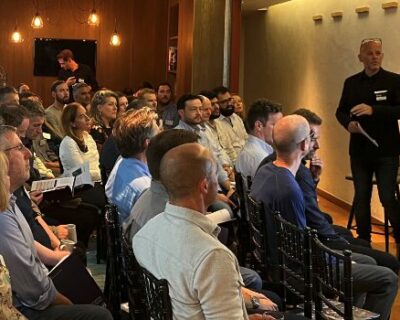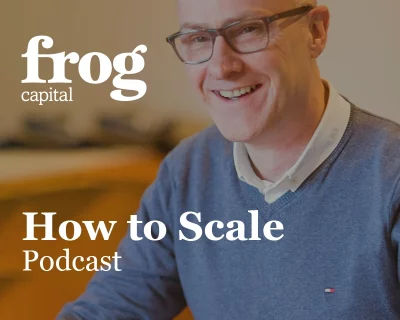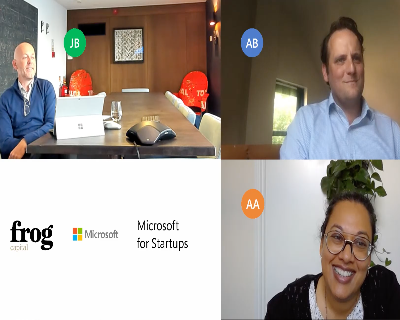Let’s start with full disclosure, the author, Martin Fincham, is well known to all of us here at Frog. He Chairs Evotix, one of our portfolio companies, and had been advising us informally for a couple of years now. Moreover, I myself have gone to him asking for advice about the very subject he’s selected for his first publication. As outlined on the book’s sleeve and in the foreword by Adam Hale, there really isn’t much documented guidance for those looking to ‘go plural’, asides from governance and best practice qualifications perhaps. This makes sense when you think that the target market for this type of material is necessarily small. You almost certainly need to have been a ‘successful’ CEO and acquired significant capital that you can easily deploy. Plus, and this is addressed at length in the book, you need to be prepared to shift from being a professional “used to calling the shots” to “a rookie who is no longer in charge”.
Like all good salespeople, Martin has chosen to wrap his ‘Non-Executive Director (NED) toolkit’ inside a narrative and he starts by laying out his backstory as a sales/geek hybrid who ultimately made it to the top table, running tech businesses all over the world. At the time of writing the book Martin sat on 7 investor backed Boards, either as Chair or NED. [Interestingly, this is the first time I’ve read something that clearly sets out the distinction between being a Chair and just a NED.] What this does is create a context of credibility, without grandstanding, so that the reader is reassured that Martin is speaking from a position of insight and experience.
Martin moves swiftly into practical advice with a suggested framework for “professionalising” your approach to a plural career. One of the first things to hit me was his perspective on angel investing, and how useful it can be to calibrate your opportunity analysis radar before becoming a NED. The detail provided here may not be a surprise to an experienced VC professional but for a jumped-up sales rep like me, it was hugely helpful. There are other tidbits in this section too, such as “EQ development” and setting sufficient cash aside for personal investing. The first point is elaborated on as he talks about “dysfunctional senior leadership teams” and how he had to maturely work through a very difficult period to really understand himself better. This search for an EQ/IQ balance is so important in my view and I found myself nodding in agreement with his “active listening” counsel and wished I’d been more self-aware when I started out as a Chair.
His observations on investment cash are insightful as at this level, investors will almost certainly want you to put your own money on the line. Now, clearly, the numbers Martin talks about will vary by individual and their own aspirations, however his comment that you probably can’t do it for less than £100,000, which is about the same as a top-level MBA, will surely focus the mind as to which road you might want to go down. He goes on, in his avuncular style, to arm the reader with pragmatic suggestions around D&O insurance, building out your network, developing a personal brand and being super patient; by taking the time to learn the ropes and doing things simply, wherever possible.
However, it is Martin’s thoughts around chemistry that were, for me, the most profound. “Chemistry is vital. I want to fall into a flow so whether you’re agreeing or disagreeing, you’re sparking off someone. And they’re listening. Even if they’re being robust…it’s done in the spirit of trying to understand the other…” His contention that personal chemistry should come first on the list of selection criteria for appraising the next business, is spot on. As an advisor (as NED’s are), the “trustworthy relationship” you need to nurture with Management, will not only help make Boards more effective, they are the necessary foundations which must stand when the business hits turbulence. I can honestly say that if I had understood the criticality of this point several years ago, I would have made a couple of quite key decisions very differently. Bravo Martin.
Martin’s thoughts on fundraising and the role NED’s play here, plus the often opaque issue of remuneration are additive, as is also his perspective on running Boards (although there is much more content available for this particular topic, clearly). But for me the apposite timing of the book (deep in the pandemic), provides for some fascinating insights on how the role has changed as trading conditions deteriorated and we all moved to remote working. He majors on cash and cost management but also on “hyper-communication”, and moving fast, whether it’s around decision-making or ruthless market focus. His comment “being a NED was no longer a part-time job” made me smile, as my regular monthly rhythm of Board Meetings has also now been augmented by late night catchups and weekend WhatsApp’s.
Martin’s experience and his approach have been neatly compacted into his first book and is easily digestible, taking only a couple of days to read. The various vignettes dotted throughout are what makes the book come alive and keep it from becoming an operating manual for NED’s. Although I cannot stress enough that the recommendations around subjects such as shareholder alignment and managing exits, are instructive and available for instant plagiarism. Already looking forward to the next one Mr Chairman!













